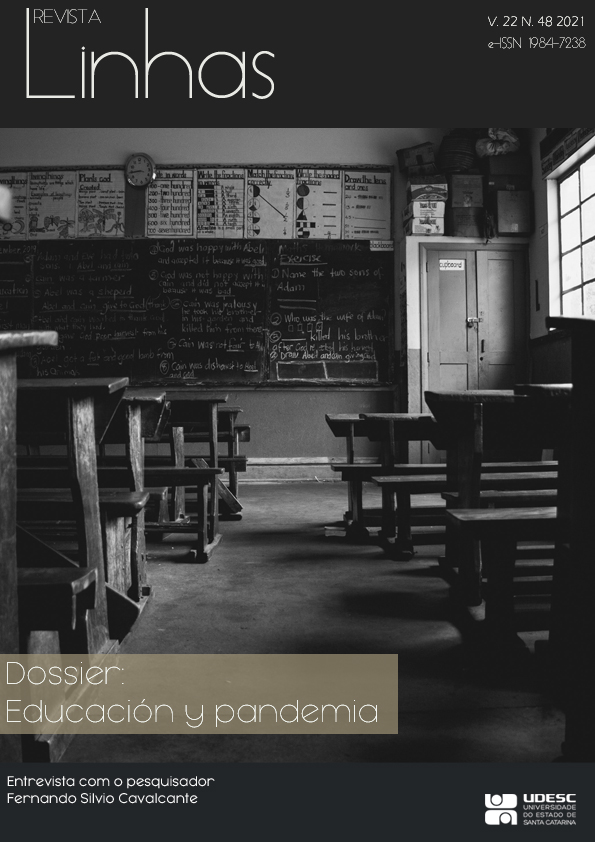Español
DOI:
https://doi.org/10.5965/1984723822482021138Abstract
The article deals with the challenges faced by public secondary schools and schools in vulnerable contexts in Uruguay in maintaining connections (media and face-to-face) with students and families in the context of the Pandemic and the suspension of classes declared by the national government as a health emergency measure. The findings presented in this article are part of a regional research in Argentina, Chile, Colombia and Uruguay: "Jóvenes, Habilidades Digitales y Brechas de Contenido en América Latina (HabLatam)", coordinated by Lionel Brossi and Mauricio Olivera. The research is supported by a qualitative methodological approach, built on documentary research, in-depth interviews and virtual workshops. The article concludes that although Uruguay is one of the countries in the region that has invested the most resources in digital inclusion policies in education, the results of remote emergency teaching were not as expected. Those responsible for the educational centres observed said that the challenges were not only to maintain technological connections with students (internet, equipment, virtual mode classes, etc.), but also to maintain connections with families so as not to lose the link with the students. The pandemic made visible problems in the technological connections of students and the school, but also in the connection of the school with the families, related to dimensions such as socio-economic, educational and cultural inequalities.
Downloads
Downloads
Published
How to Cite
Issue
Section
License
Os artigos publicados pela revista são de uso gratuito, destinados a aplicações educacionais e não comerciais. Os direitos autorais são todos cedidos à revista. Os artigos cujos autores são identificados representam a expressão do ponto de vista de seus autores e não a posição oficial da Revista Linhas ou do Programa de Pós-Graduação em Educação da Universidade do Estado de Santa Catarina.

A Revista Linhas está licenciada com uma Licença Creative Commons - Atribuição-NãoComercial-SemDerivações 4.0 Internacional.


